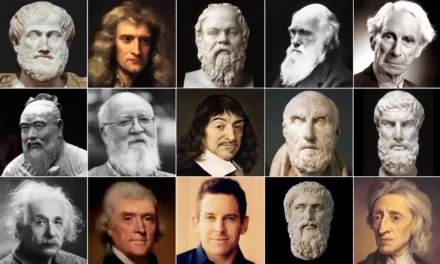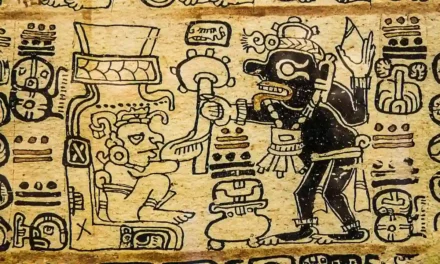
6 actionable tips to become a freethinker
I
n a world where conformity often reigns and distractions abound, there exists a unique group of individuals who dare to question, challenge, and think for themselves. These freethinkers, the rebels of the mind, offer a fresh perspective that liberates us from dogma and societal expectations. Joining their ranks opens up a world of limitless possibilities, allowing us to make better decisions, live authentically, and create positive change.
In this article, we will explore the concept of freethinking, its importance, and actionable steps to become a freethinker, transforming our lives in the process.
Freethinkers offer a fresh perspective that liberates us from dogma and societal expectations.
Understanding Freethinking
Freethinking is a mindset and approach to life that empowers us to break free from the shackles of conventional wisdom. It is about challenging prevailing beliefs, questioning the status quo, and exploring the uncharted territories of our own minds. By embracing freethinking, we open ourselves up to new ideas, diverse perspectives, and intellectual growth.
Who Should Be a Freethinker
Freethinking is not limited to a select few. Anyone who dares to question the world around them, thinks freely or independently, forms opinions on the basis of reason independently of authority, yearns for deeper understanding, and seeks to live an authentic life can embrace freethinking. It is an invitation to all those who desire personal development, value logic and reason, and are open to embracing intellectual curiosity.
The Benefits of Freethinking
By becoming a freethinker, we gain numerous benefits that enrich our lives. We break free from societal expectations, allowing us to discover and pursue our true passions and aspirations. Freethinking equips us with the tools of reason, logic, and critical thinking, enabling us to make better decisions that align with our values. It encourages intellectual growth, broadens our perspectives, and fosters personal and professional development.
Enhancing Decision-Making and Fulfillment
Embracing freethinking has a profound impact on our decision-making process and overall life satisfaction. By challenging assumptions, seeking evidence, and exploring different perspectives, we make informed choices rather than blindly following the crowd. Freethinking empowers us to see beyond the surface, analyze complex situations, and make decisions aligned with our values and aspirations. As a result, we experience a deeper sense of fulfillment and purpose in our lives.
Becoming a freethinker is a journey that starts with a shift in mindset and intentional actions.

ARE YOU A GOOD CRITICAL THINKER?
Do you think you are a good critical thinker? Do you believe you possess finely tuned reasoning skills?
Enter your information to get our FREE test so you can assess how good you are!
The Universality of Freethinking
Freethinking is not limited to philosophers or intellectuals. It is a mindset accessible to all. Regardless of our backgrounds, interests, or professions, we can all benefit from developing our critical thinking skills and embracing intellectual curiosity. Freethinking encourages diversity of thought, fosters innovation, and sparks positive change in our communities and the world.
Consequences of Not Embracing Freethinking
The consequences of neglecting freethinking can be dire. By accepting everything at face value, without critical examination, we risk becoming passive recipients of information and influenced by external forces. Our decisions may be based on biases, misinformation, or societal pressures, leading to a life devoid of authenticity and personal fulfillment. Without freethinking, we miss the opportunity to discover our own truth and unleash our full potential.
Freethinking is a mindset and approach to life that empowers us to break free from the shackles of conventional wisdom. It is about challenging prevailing beliefs, questioning the status quo, and exploring the uncharted territories of our own minds.
Examples of freethinking in action
- Questioning Cultural Norms: Freethinkers are not afraid to question societal norms and cultural traditions. They critically examine practices, beliefs, and customs that may have been blindly accepted for generations. By challenging these norms, freethinkers encourage progress and social change.
- Evaluating Scientific Findings: Freethinkers approach scientific findings with a healthy skepticism. They analyze research methods, review evidence, and assess the validity of conclusions. Rather than accepting scientific claims at face value, freethinkers engage in critical analysis to form their own informed opinions.
- Challenging Authority: Freethinkers are not intimidated by authority figures or popular opinion. They ask tough questions, scrutinize the actions and decisions of those in power, and hold them accountable. By challenging authority, freethinkers foster transparency, fairness, and ethical decision-making.
- Embracing Intellectual Diversity: Freethinkers value intellectual diversity and engage in respectful debates with individuals who hold different viewpoints. They seek out opposing perspectives, consider alternative arguments, and are open to changing their own beliefs based on well-founded reasoning. By embracing intellectual diversity, freethinkers foster intellectual growth and cultivate a more inclusive society.
- Pursuing Unconventional Paths: Freethinkers are not bound by societal expectations when it comes to their personal and professional choices. They pursue unconventional paths, follow their passions, and embrace their unique talents and interests. By daring to be different, freethinkers inspire others to question conventional paths and explore their own authentic journeys.
These examples illustrate how freethinking encourages critical examination, independent thought, and the pursuit of truth, ultimately leading to personal growth, societal progress, and the expansion of knowledge.
Actionable tips to cultivate the art of freethinking
- Question everything: Challenge assumptions, explore different perspectives, and seek evidence and reasoning before accepting or rejecting ideas.
- Cultivate intellectual curiosity: Read books, engage in meaningful conversations, and explore diverse fields of study to expand your knowledge and understanding.
- Develop critical thinking skills: Learn to evaluate information, identify logical fallacies , and distinguish between fact and opinion. Practice analyzing arguments and evidence to hone your critical thinking abilities.
- Embrace intellectual humility: Recognize that you don’t have all the answers and be open to learning from others. Be willing to admit when you are wrong and adjust your beliefs accordingly.
- Seek solitude and reflection: Create moments of stillness and introspection to process your thoughts, analyze your experiences, and gain clarity amidst the noise of daily life. This will help you develop a deeper understanding of yourself and your values.
- Engage in constructive debates: Surround yourself with diverse perspectives and engage in respectful discussions. Challenge your own beliefs and be willing to revise them based on well-founded arguments.
Now, armed with the knowledge and understanding of freethinking, it is time to embark on your own journey of intellectual liberation. Becoming a freethinker is a journey that starts with a shift in mindset and intentional actions. Embracing freethinking allows you to break free from the chains of conformity, discover your authentic self, and make informed decisions that align with your values and aspirations. By becoming a freethinker, you join a community of individuals who inspire positive change, challenge the status quo, and shape a better future. So, I urge you to step outside your comfort zone, question, explore, and think for yourself.
Embrace the power of freethinking and unlock your true potential. The world is waiting for the brilliance of your unique perspective.


ARE YOU A GOOD CRITICAL THINKER?
Do you think you are a good critical thinker? Do you believe you possess finely tuned reasoning skills?
Enter your information to get our FREE test so you can assess how good you are!





0 Comments